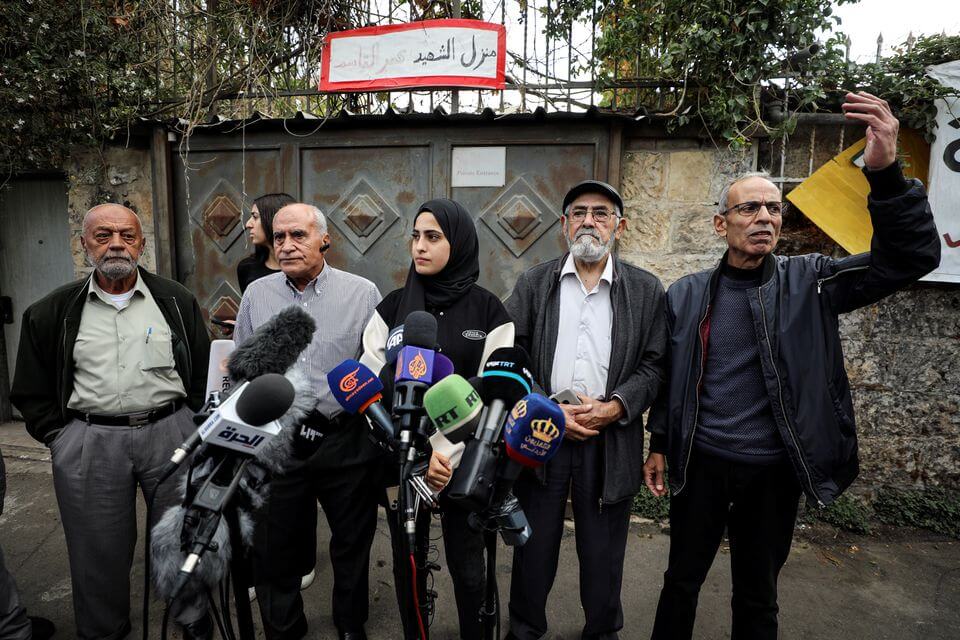Palestinian families facing eviction from East Jerusalem’s Sheikh Jarrah neighbourhood have rejected a deal with Israeli settlers to delay the eviction and accept temporary ownership of their homes. The deal, proposed by the Israeli Supreme Court in October, called for delaying the eviction for more than a decade.
During a press conference in Sheikh Jarrah on Tuesday, the four Palestinian families said the decision to reject the offer was based on “our belief in the justice of our cause and our right to our homes and our homeland.” They stressed that rather than submitting to an “unjust agreement” they would rely on the “Palestinian street” to raise international awareness of their plight.
“The Israeli judiciary is circumventing its obligation to issue a final decision, and is making us choose between dispossession and submitting to an unjust agreement,” Sheikh Jarrah resident Muna al-Kurd, one of the Palestinians threatened with eviction, said in a press conference. “We won’t allow Israel to market itself as a just occupation at our expense,” she added.
The Sheikh Jarrah dispute dates back to the 1940s, before the creation of Israel. The Israeli organisation fighting for the eviction—Nahalot Shimon—argues that the Palestinian homes in Sheikh Jarrah were built on land owned by Jews before the 1948 war of independence. Following the war, the disputed area came under the control of Jordan, who leased the land to the families.
Also Read: Israel’s New Approach to Palestine is Encouraging, But the Road Ahead Remains Tough
Israel recaptured the area following the 1967 Arab-Israeli war and transferred all properties, including the homes in Sheikh Jarrah to the Israeli government. Furthermore, in 1970, Israel passed a law declaring the return of the land to its original owners, resulting in decades of legal disputes with the Palestinian families residing in Sheikh Jarrah.
The Palestinian families have rejected the claims made by Nahalot Shimon and argued that they have a right to ownership since their families have been living in Sheikh Jarrah for generations. Facing the risk of eviction, Palestinians living in the area have frequently resorted to protests, leading to confrontations with Israeli settlers and the police.
In May, tensions escalated rapidly when both sides engaged in violent physical confrontations. Palestinians were further angered when right-wing Kahanist lawmaker Ben-Gvir set up an office near the neighbourhood on Thursday as the community was observing Iftar rituals.
The clashes soon spread to the West Bank and holy Islamic sites in Jerusalem and saw the involvement of Israeli security forces, who used force against the protesters and even raided the Al-Aqsa mosque compound, injuring over 200 Palestinians.
The violence in Sheikh Jarrah was one of the key flashpoints that led to a brutal 11-day conflict between Israel and Hamas in Gaza. The fighting saw militants in Gaza launch more than 4,000 rockets at Israel that killed 12 people. Israel responded by launching airstrikes that killed more than 200 Palestinians, including over 60 children.

